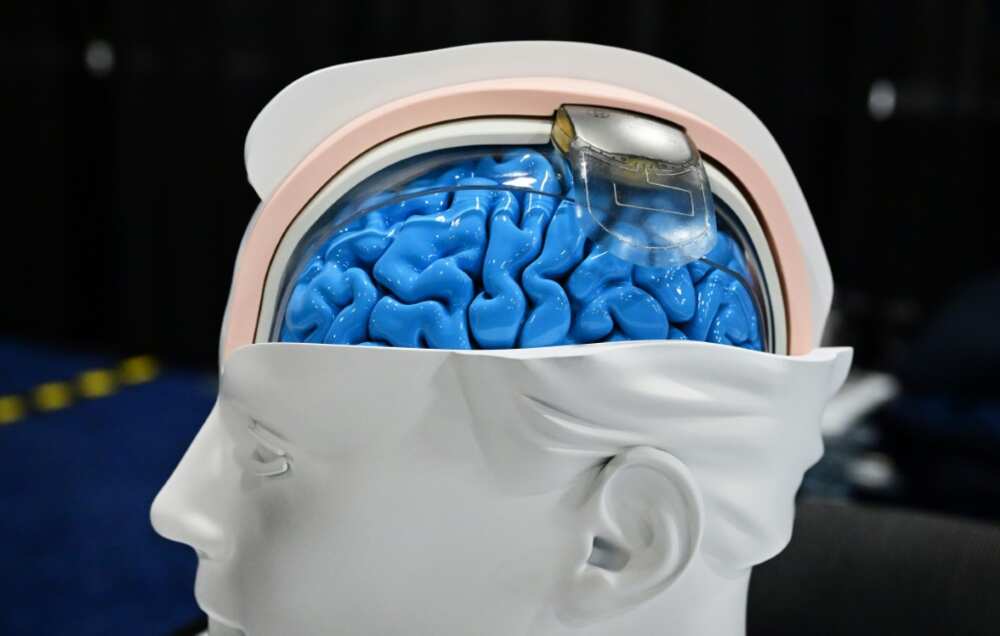At CES, tech knows if you're sick and rocks babies

Source: AFP
CES, the annual high tech gadget extravaganza in Las Vegas, again delivers its wave of new inventions and cutting edge technology with artificial intelligence this year's unavoidable buzzword.
Here's a look at some selected examples shown to the media, ahead of the official opening on Tuesday.
Mirror, mirror on the wall...
...who's the healthiest of them all?
Called "MagicMirror," NuraLogix's connected mirror scanned the face of the company's marketing executive Lindsay Brennan determining in a matter of seconds her body mass index, blood pressure and even her "mental stress index," calculated from heart rate.
"You can see for me I'm a bit high, I'm almost in the yellow zone," said Brennan, pointing to the indicator displayed on the mirror.
PAY ATTENTION: Сheck out news that is picked exactly for YOU ➡️ find the “Recommended for you” block on the home page and enjoy!
"That's because of the show," she joked.
NuraLogix claims that thanks to its optical technology and artificial intelligence software, its mirror can assess risks of diseases such as type 2 diabetes.
"This actually started out of the University of Toronto when they were researching lie detection in children," she said.
"They learned that when you get excited or your blood pressure is high, the blood flow actually changes in your face and you can actually capture these patterns using any conventional camera."
Intended to be used in a doctor's waiting room or pharmacies, the mirror is expected to cost about $70,000.
NuraLogix also plans to market the software separately.
Implant to walk again
If all goes according to plan, Wimagine, the brain implant designed by France's Atomic Energy Commission (CEA), should enable paralyzed people to walk again.
Equipped with electrodes, this brain-to-machine interface is installed in direct contact with the motor cortex, which controls voluntary movement of a paraplegic or tetraplegic patient.
In a first case, the data collected by the implant is transferred wirelessly to a connector attached to the spinal cord, below the paralyzed lesion.
All the patient has to do is think about walking, and the information is transferred to the connector and then to the legs.
"It's a digital bridge," Guillaume Charvet, head of the CEA research program, told AFP.
In the second case, the implant communicates with an exoskeleton or purpose-built skeleton that performs the gestures commanded by the patient.
With a connector placed on the forearm, it can, for example, be used to grasp an object with the hand.
"A clinical trial is about to begin," said Charvet, stressing that five to ten years of research are still needed. But patient volunteers have already been involved for several years. "The aim is for it to be in the same price range as a pacemaker," he added.
'Rock my baby'
"We're the first electric stroller with all the AI features for comfort and safety," said Gluxkind engineer Jeffrey To.
The AI-powered stroller is supposed to make parents' complicated lives easier, like a co-pilot, he explained.
The electric assistance makes it possible to climb hills without breaking a sweat, and the brakes engage automatically "so there's never a chance of a runaway stroller," To said.
"It recognizes humans, pets, scooters, bikes, vehicles that might not be stopping and gives an extra warning so that sleep deprived parents essentially have driver assist on a daily basis," added Kevin Huang, co-founder of the Canadian company.
When the parent activates the "Rock my baby" function, the stroller performs a regular back-and-forth motion to help the child fall asleep.
"There are also built-in speakers that can read stories, play music or white noise," said To.
Gluxkind hopes to start production next spring priced at around $2,400.
PAY ATTENTION: Unlock the best of Legit.ng on Pinterest! Subscribe now and get your daily inspiration!
Source: AFP



